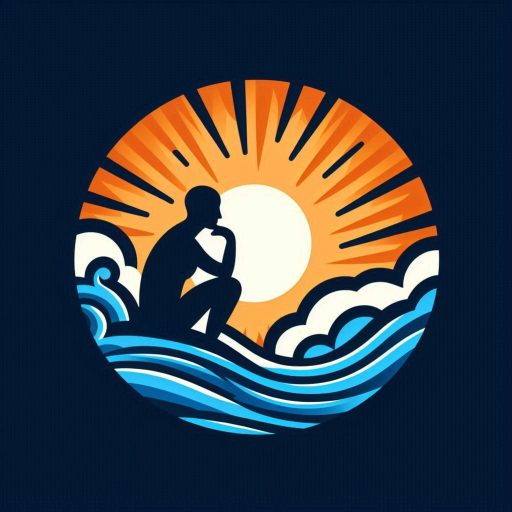Want To Be An Author? Here are the Three Most Important Things You Can Do
When I published my first novel back in 2016, I had more than a few people tell me that they wished they could write a book. Many of them said they had ideas in their heads but could never make a book out of them. This story plays out to other authors every day; author friends I know often report people telling them that they wished they could write a book and get published.
In this day and age, most people can be authors if they truly desire to be. Whether it’s fiction or nonfiction, short stories or volumes, the opportunities are out there. (And almost anyone can be a writer of, say, short nonfiction or technical nonfiction if they put the effort into it.) Traditional publishing still lives, and self-publishing is a real thing now. (I’ve done both.)
But how? How does one become an author? Well, that’s not a short answer: there are lots of logistics that go into the process. But none of that matters if you don’t have the fundamentals. Just like you can’t play baseball if you’ve never picked up a bat, you can’t be an author, much less a successful one, if you don’t do certain things.
Here are three of the biggest.
1. Read.
A while back an aspiring writer said that she was trying to write a novel in a certain genre. Hard science fiction, specifically, which is science fiction based on concrete physical science, like Andy Weir’s The Martian. The writer said she needed some advice about certain elements of the book. She admitted that she hadn’t read much hard science fiction and wanted to make sure her book had the right language.
Several commenters pointed out gently, but firmly, that it doesn’t make a lot of sense to write in a genre that one knows nothing about. They all went on to point out that she needed to be reading in the genre, probably for years, before she would be qualified to write in it.
I’m not sure what she ended up doing, but I think her perspective is shared by a lot of would-be writers. They understand that writing is important to writing, but they don’t realize that the most important component of writing, by far, is reading.
Stephen King, in his book On Writing, said: “If you want to be a writer, you must do two things above all others: read a lot and write a lot. There’s no way around these two things that I’m aware of, no shortcut.”
Later on, he added (emphasis is mine):
You have to read widely, constantly refining (and redefining) your own work as you do so. It’s hard for me to believe that people who read very little (or not at all in some cases) should presume to write and expect people to like what they have written, but I know it’s true. If I had a nickel for every person who ever told me he/she wanted to become a writer but “didn’t have time to read,” I could buy myself a pretty good steak dinner. Can I be blunt on this subject? If you don’t have time to read, you don’t have the time (or the tools) to write. Simple as that.
The most important thing you can do is read. You should read widely, in all sorts of genres. And you should be very well versed in the genre you’re writing in, because you’re writing for the same audience that those authors are writing for.
2. Finish.
When I was in middle school, I remember reading a book on writing for class. Among other things, it talked about rough drafts. The book encouraged writers to just write. In other words, rather than stop and agonize because the words weren’t perfect, just push through and get the thing done.
The advice was aimed toward adolescent kids writing short pieces, but I think the advice is just as valuable for would-be authors. The writing universe is strewn with the corpses of unfinished manuscripts, where people started writing … and then, for one reason or another, lost steam and eventually quit. Maybe they lost interest. Maybe they got frustrated. Maybe they got stuck and didn’t know where to go. But whatever the reason, they did not finish.
If you want to be an author, you’ve got to get to the end, and it’s going to be harder to do the longer your project is. Writing is intense work, and, as famed science fiction author Orson Scott Card once pointed out, it can be tedious work. It takes enormous creative energy, patience, and fortitude.
“But I’ve written this thing and it’s terrible.” Only you and those who critique your work (more on this later) can ultimately decide on how good or bad the writing is, but I’ll say this: you can’t fix what you don’t finish. A drafted manuscript can be revised, rewritten, and improved; an unfinished manuscript can’t.
So if you want to be a successful writer, you’ve got to finish.
3. Be Willing to Accept Criticism.
All aspects of writing are hard in their own way. Finishing, for example, requires the qualities I talked about above, including the drive. Even reading can be hard if you’re not naturally a voracious reader and if you’ve got a lot of other things on your plate.
Criticism, though, is uniquely challenging because it can hurt. No one likes being told they’re wrong, or that something they’ve created is bad. Heck, just the fear of criticism can be anxiety-inducing. What if they hate my writing? What if they want me to rewrite everything? What if they tell me I’ll never write?
Those are all normal fears to have … and part of being a successful writer is overcoming those normal fears. That’s why it’s so important to prepare yourself for guidance and correction along the writing process.
I know. When I first started writing, I exposed myself to beta reader criticism, and then publisher criticism, and later editor criticism. That meant beta readers telling me to change things, and publishers rejecting my writing, and editors pushing me to make wholesale changes. All were hard.
The good news is this: the more you do it, the better it gets. Why? Because you get practiced at making changes. You learn how to expect it. And then, slowly, it becomes a little less personal each time. I’m not saying it doesn’t hurt—but with time you come to see it as a professional writer, and that’s an important bridge.
Because ultimately, that’s the goal.
What other habits do you see as essential to being an author?







